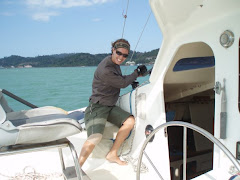The following article was originally published on Psychology Today.com 2/24/10
Marc Bekoff is a former Professor of Ecology and Evolutionary Biology at the University of Colorado, Boulder, and co-founder with Jane Goodall of Ethologists for the Ethical Treatment of Animals. He has won many awards for his scientific research including the Exemplar Award from the Animal Behavior Society and a Guggenheim Fellowship. Marc has written more than 200 articles, numerous books, and has edited three encyclopedias.
"Tilly, a wild-born killer whale (orca), killed his trainer at SeaWorld Amusement Park in Florida. Many people have asked me about this tragedy so here are a few comments. Details about this most unfortunate incident are available in major media around the world but the accounts vary. First, let me be clear that this is a tragedy for all the animal beings involved. Second, let me be clear that in my opinion this could have been easily avoided if Tilly had not been "on show" and had been allowed to live out the rest of his life in dignity. Animals can be unpredictable, including members of our own species, and captive animals are often highly stressed to begin with.
That Tilly had a history of attacking humans does not mean that he was any more likely to attack again, but this should have been taken into account in how he was housed. In a TV interview I saw this morning her former trainer in British Columbia said it was his understanding that when Tilly was sold to SeaWorld, he would not be used in shows. But, unfortunately, he was. While the details remain unclear, it is totally possible that Tilly was surprised or "freaked out" by something that happened and responded as he did because he was afraid of something unusual.
This would be especially so if the trainer had actually slipped into the tank (rather than her being grabbed) as this would have been unexpected by Tilly. Many animals will run away from something that surprises or stresses them but TIlly could not because he was in a cage and there was no where for him to go. One of my companion dogs once grabbed my ankle when i jumped out of bed because I heard a noise outside my bedroom window and when I yelled "It's me!" she let go. She was a typical love-dog but was scared and startled when I did something out of the ordinary.
While we may never know the details of what happened this tragedy could have been avoided if Tilly had been kept apart from people (and perhaps other orcas) and allowed to live out his life in dignity. Perhaps attempts could have been made to reintroduce him to the wild from which was taken. Whether or not his "controversial history" was a factor also remains unknown, but this should have been taken into account when he arrived in Florida.
Unfortunately, killer whales and other highly sentient beings are shipped here and there from one zoo or aquarium to another to be used in shows that generate a lot of money. We need to respect these beings for who they are and not put them on display as if they're some sort of commodity or object who live for our own entertainment, because they're not. Indeed, many whales possess spindle cells that are important in processing various emotions and anyone who's been around orcas and other cetaceans know that they are extremely emotional beings. Some people argue that cetaceans may fulfill the criteria for being called "persons."
My heart goes out to the humans involved in this tragedy and also to Tilly. Let's take all measures to make these sorts of encounters become things of the past by keeping whales and people apart.
Let me add that the video, Luna is a must see for it shows how social orcas are and how friendly they can be. They need friends just like our companion animals.
It also is the case the "friendly" wild animals will attack humans who they know well. Let's remember that many of these animals still have "wild genes" and can be unpredictable and can easily be startled. Furthermore, we really don't know what is lurking in their heads (and hearts) so we must be careful and not assume that they always will be friendly or predictable. In many ways these are accidents/tragedies waiting to happen.
*I just learned that Tilly has produced 13 babies for SeaWorld who have not been on display and will not be "destroyed."
http://www.psychologytoday.com/blog/animal-emotions/201002/whales-and-people-tilly-is-not-blame-avoidable-tragedy
Friday, February 26, 2010
Subscribe to:
Post Comments (Atom)




















No comments:
Post a Comment